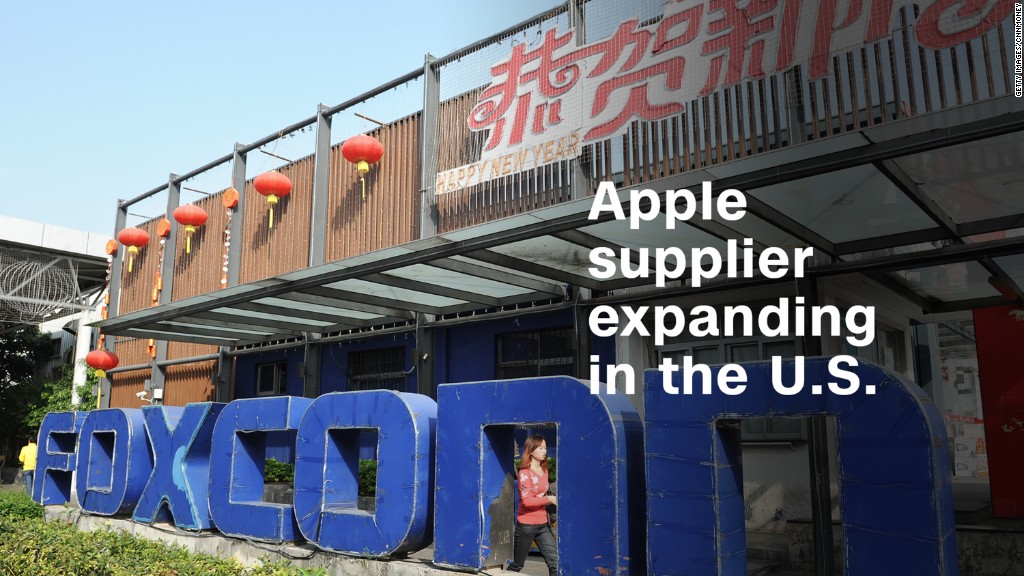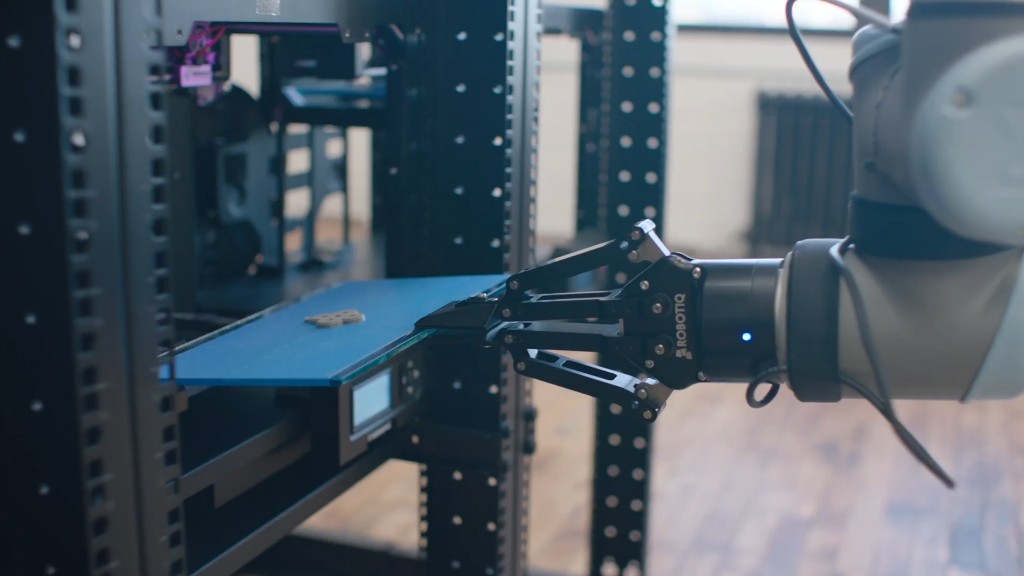
Apple supplier Foxconn, which has announced a $10 billion investment in Wisconsin, has been hailed by President Trump as "one of the truly great companies of the world."
Industry observers are more skeptical of the Taiwanese company's accomplishments, highlighting Foxconn's poor record on worker rights, its goal of replacing workers with robots, and a history of grand promises that don't always play out.
"American workers should be wary," said Eli Friedman, associate professor of international and comparative labor at Cornell University, adding that Foxconn had a history of getting "headlines that rarely match the reality."
He pointed to an announcement in 2013 by Foxconn of plans to build a $30 million plant in Pennsylvania that have so far not come to fruition.
Foxconn told CNN that its interest in Pennsylvania remains strong, but the state government has not yet been able to commit to the level of support necessary to make the project "economically viable."
The Wisconsin factory, meanwhile, will create 3,000 jobs with the potential to grow to 13,000, Foxconn added. The state's governor said it should be completed by 2020.
Hiring robots, not workers
In 2011, following a spate of worker suicides that sent Foxconn's reputation plummeting and made it a prime example among Chinese workers of poor labor conditions, CEO Terry Gou made a promise.
The Taiwanese business magnate said his company would employ 1 million robots over the next three years, moving humans away from the production lines where their labor -- on Apple (AAPL) iPhones and other high-end electronics -- had made him a billionaire.
While one factory cut 60,000 jobs last year thanks to automation, according to the South China Morning Post, Gou's dream of a robot workforce has been slow to materialize.
But his support for automation has not waned. Christopher Balding, a professor of economics at Peking University, said the Wisconsin plan fits with Foxconn's strategy of pursuing automation to counter rising labor and transport costs related to manufacturing in China.
Balding said it made no difference to Foxconn whether it employed a robot in China, or a robot in the U.S.
"Three thousand jobs to Foxconn is irrelevant, so if they're going to be doing that in the U.S., it's not going to be people on production lines building TVs, it's going to be a small number of people watching robots build TVs."
Friedman said that Foxconn had a history of "taking steps to invest in robotics which allowed them to stop hiring people" as wages rose in China.
Foxconn said it has been investing in automation for many years but expected to "maintain significant employee levels throughout our global operations."

Worker woes
Foxconn's tactics have been good for the company's bottom line, but not so much for workers, say its critics.
"Work in general at Foxconn is extremely taxing, extremely monotonous and has an extremely high burnout rate," said Keegan Elmer, a researcher at the Hong Kong-based China Labor Bulletin.
The company has also been accused of undercutting minimum wage laws and benefits protections by hiring young "interns," some of them underage high school students, to work on production lines.
In 2012, New York-based China Labor Watch found children as young as 14 were forced to work in Foxconn factories by technical colleges or they would not graduate. An audit of the company by the Fair Labor Association found that "in 2011, 2.7% of the workforce of Foxconn Group consisted of interns, an average of 27,000 interns per month."
"Our assessors found that interns worked both overtime and night shifts, violations of the regulations governing internships," the report said.
An investigation by Foxconn in 2012, soon after the China Labor Watch report, found that underage workers had been employed, which the company described as a "violation of Foxconn policy," adding that "immediate steps have been taken" to stamp the practice out.
Analysts said that while underage workers have been largely phased out, the use of low-paid interns continues. This month, a university in northeastern Liaoning province admitted students had been told they could not graduate unless they completed a three-month placement at a Foxconn plant.
Foxconn told CNN it does run internship programs in partnership with local governments and some colleges in China, but said interns receive the same pay as entry-level employees and can leave whenever they choose.
"We comply fully with all relevant laws and regulations in the implementation of this program," the company added.
Not the jobs Trump promised
During the election campaign, Trump harkened back to the glory days of U.S. manufacturing -- when unionized workers enjoyed high-paying jobs on assembly lines churning out cars and washing machines.
But Cornell's Friedman was skeptical Foxconn could provide Wisconsin workers anything of the sort.
"Even in the best case scenario, there's not that much to get excited about a Foxconn job in the U.S.," he said. "These are not going to be the kinds of good jobs Donald Trump has been promising."
However, Balding said the jobs would likely be skilled and well paid due to the complexities of overseeing automated production lines, but he too was doubtful the company would bring anything like the level of employment it provides at its factories in China to the U.S.
"When they talk about three thousand jobs in Wisconsin, that's a lot of jobs for a single plant, in China it's not even a rounding error," he said.

